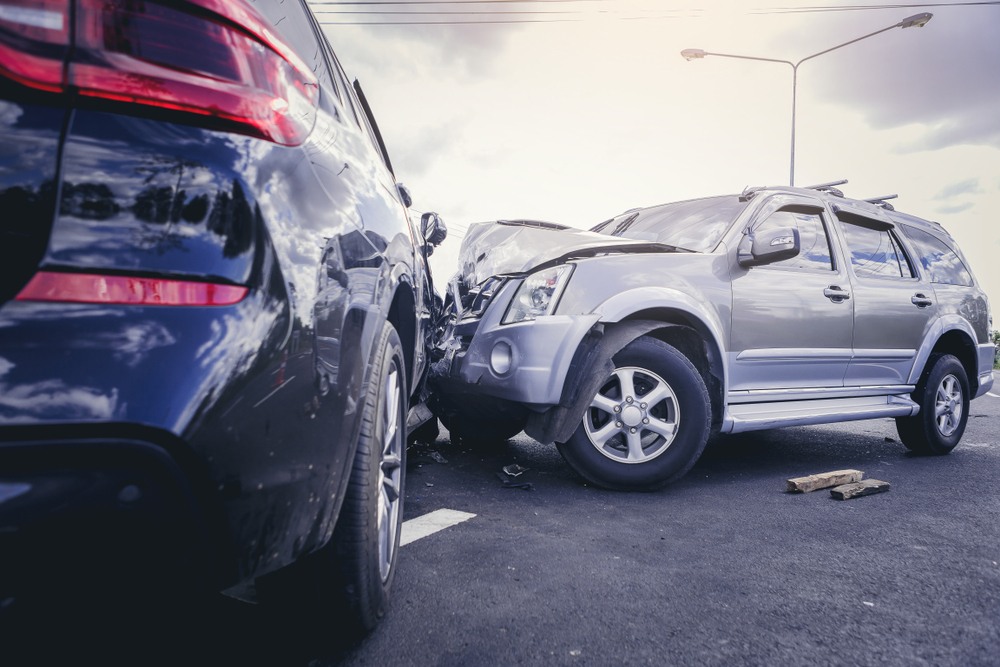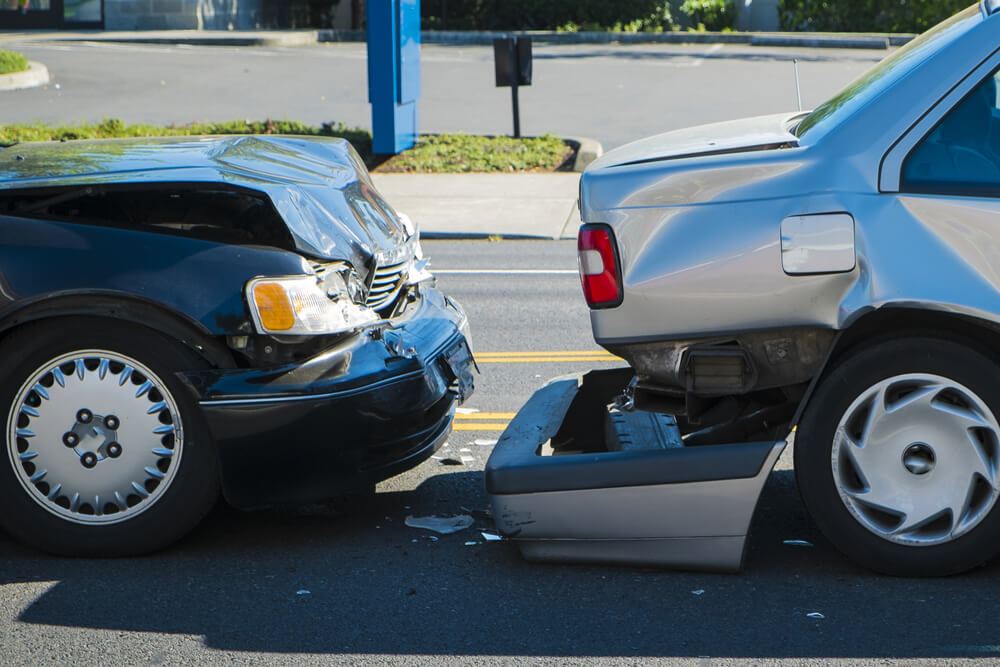Whether you can sue after a car accident depends on your case’s facts. If another party’s negligence caused your collision and injuries, you can request that a judge order them to pay damages. The success of your case rests on many factors, however including the supporting evidence you have.
If you want to take legal action, Hire a car accident attorney. They can file your case, determine your losses, and advocate for what you need.

You Have Legal Rights and Options After a Collision
As noted, you can sue after a car accident. Yet, whether your lawsuit succeeds is a different matter altogether. If your lawyer determines that a lawsuit could yield compensation, here’s what you know:
The Outcome of Your Case Depends on Its Supporting Evidence
Proof is critical when you sue after a car accident. For your case to succeed, you must prove the other party’s financial responsibility using evidence.
Supporting information in your case may constitute:
- Photos and videos of the accident scene
- Medical documentation of your car accident injuries
- Bills, invoices, and receipts for medical care
- Your treatment plan
- Witness accounts of the accident
- Professional accident reconstruction data
A car accident lawyer who handles cases in your area will know how to secure critical documentation to support your case. They can also listen to your story during a no-obligation consultation.
A Successful Lawsuit Requires You to Prove Negligence
Negligence occurs when someone fails to act with reasonable care. In a car accident, negligence could include texting while driving, speeding, or driving while intoxicated.
Proving that another party acted negligently requires demonstrating:
- The other party acted carelessly or recklessly.
- Their negligent actions caused your car accident.
- The other party’s actions caused your accident and injuries.
- You suffered losses because of those injuries.
Proving negligence after a car accident can be complicated, even if it appears simple at first glance. In some cases, the responsible party is not immediately apparent, or there is more than one at-fault party. In these situations, you could benefit from a lawyer’s insight. They can prove negligence, along with your case’s other required elements.
You Must Meet Your Case’s Filing Deadlines
Each state has different statutes of limitations for personal injury lawsuits. Some states give you years to file. Other states have shorter filing periods, sometimes giving claimants only a few months to act.
Claims and lawsuits are two separate matters with different filing deadlines. The liable insurer’s deadline may vary from the lawsuit the stated implemented. One thing’s for certain: adhering to the necessary deadline is critical to your case’s outcome. By considering prompt legal action, you can protect your rights and pursue what you need from the responsible party.
The Defendant in Your Lawsuit Depends on Your Case’s Details
The defendant in your case depends on the circumstances of your accident.
Negligent parties in a personal injury case may include:
- Another motorist
- The other driver’s employer
- A company responsible for an involved car’s maintenance
- A manufacturer or distributor of faulty car components
- An organization responsible for road maintenance and repairs
In cases where multiple people are liable, you could file a lawsuit against all the responsible parties. For example, if you suffered injuries because a delivery driver’s brakes failed, you could sue the driver, their employer, and the company responsible for producing the faulty brake parts.
A personal injury lawyer who handles car accidents can determine liability for your losses and take action.
You Could Recover These Losses Through a Car Accident Lawsuit
When you sue someone for a car accident, your goal is to recover compensation for your injury-related losses. These losses, called damages, could include:
Economic Damages: Your Monetary Losses
Some economic damages are easy to quantify because they come with bills, invoices, and receipts.
Such compensable economic damages include:
- Missed work or lost income while you recover from the car accident
- Medical expenses, such as hospital bills
- Assistive equipment and medical devices to help you recover from your injuries
- Medication and other treatments
- Physical and psychological therapy
You could also recover the cost of any out-of-pocket expenses related to the collision, which may include childcare services and car repair costs.
Non-Economic Damages: Your Non-Monetary Losses
Non-economic damages are difficult to calculate because they do not have specific assigned values.
Still, you can recover compensation for:
- Pain and suffering, both physical and mental
- Disabilities, such as paralysis and cognitive impairments
- Mental and emotional anguish
- Loss of enjoyment of life
- Scarring, disfigurement, and/or disability
You may pursue other losses than those listed here. While non-economic damages don’t come with supporting documentation, your lawyer can determine their values based on your injury’s severity, overall suffering, and future.
You Could Seek Damages Through a Wrongful Death Lawsuit
If you lost a loved one after a car accident due to someone else’s negligence, you could pursue compensation through a wrongful death lawsuit.
Although the specific terms differ by state, many wrongful death lawsuits allow the spouse, children, or parents of the deceased person to seek compensation for various losses, including:
- End-of-life medical bills, such as palliative care
- Loss of consortium
- Funeral and burial expenses
- Loss of advice
- Your loved one’s pain and suffering before their passing
- Anything you spent out of pocket related to your loved one’s passing
Like personal injury lawsuits, wrongful death lawsuits also come with filing deadlines. It’s a good idea to consult a lawyer about any relevant deadlines regarding your case.
How Long Does It Take to Get a Car Accident Settlement?
Depending on your case’s complexity, a car accident lawsuit can take time to complete.
Your case’s success depends on:
- The evidence you have to support your case
- The other party’s cooperation
- The court’s docket
- The county where the accident happened
- What circumstances resulted in the accident
- The number of liable parties
A lawyer can’t speed up the legal process. However, they can address any complications that prevent your case from moving forward.
What Happens When My Car Accident Case Goes to Court?
First things first: most car accident cases never see the inside of a courtroom. Most injured claimants reach settlements through insurance claims, which don’t necessitate courtroom proceedings.
Yet, if your case makes it to court, here’s what to know:
- Both sides share information during a process known as “discovery.” This means both the plaintiff and the defendant’s legal team work with the same evidence.
- Both sides will take depositions and interrogatories from witnesses, which may include eyewitnesses, healthcare providers, and accident reconstruction specialists.
- A judge and/or jury will make a decision about your case. They may decide to award compensation for your injury-related losses.
- One or more sides may object to unfair proceedings, which may include irrelevant or misleading questions.
Lawsuits come with many obligations. Instead of managing the bureaucracy of a lawsuit, consider hiring a lawyer. An attorney with trial experience can litigate your case and advocate for your best interests.
Lawsuits come with many obligations. Instead of managing the bureaucracy of a lawsuit, consider hiring a lawyer. An attorney with trial experience can litigate your case and advocate for your best interests.
What if the Insurance Company Offers Me a Settlement?
Insurance companies want to limit how much money they spend on car accident claims. So, in the aftermath of your collision, the liable insurer may offer compensation. Yet, this might not account for the full scope of your losses, including the medical treatment you haven’t received yet.
Before you accept a settlement offer or agree to any official statement, consult with your car accident attorney. Your legal team can assess your losses and determine whether an offer meets your needs. If not, they can negotiate with the insurer. They could also file a lawsuit against the at-fault party and manage what comes next.
What Should I Not Say to the Insurance Company?
While your attorney can handle negotiations, discussions, and agreements with the insurance company, you should still be cautious when dealing with the claims adjuster. Even if they know you have a lawyer, they may request that you give a recorded statement. This is not in your best interest. The insurer could use anything you share to discredit or devalue your case.
Avoid saying:
- “I’m fine.”
- “I’m okay.”
- “I’m not hurt.
- “I had this injury before.”
- “It was my fault.”
- “I wasn’t paying attention.”
- “I’m sorry.”
Avoid voicing speculation or pointing fingers when discussing the cause of the accident. When the insurance company calls, refer its representative to your lawyer.
What Injuries Allow Me to Sue After a Car Accident?
If you suffered serious injuries in a car accident, you could sue the negligent party.
These injuries may include:
- Broken bones
- Nerve damage
- Paralysis
- Spinal cord trauma
- Traumatic brain injuries (TBIs)
- Soft-tissue injuries, including whiplash
- Mental health complications, including post-traumatic stress disorder
- Lacerations that result in substantial blood loss
- Burns
- Road rash
You could file a lawsuit based on the physical and mental injuries your collision caused.
What Are the Common Causes of Car Accidents?
Who you can sue after a car accident depends greatly on the cause of the accident.
After investigating your collision, your lawyer may find these factors caused your accident:
- Speeding or driving too fast for roadway conditions
- Reckless or aggressive driving
- Distracted or inattentive driving
- Driving while under the influence of drugs, alcohol, or fatigue
- Inexperienced or unlicensed driving
- Inclement weather
- Poor road conditions
- Road construction or utility work
You have options even if you don’t see the cause of your accident listed above.
Why Work With a Lawyer After a Car Accident?
Even the simplest personal injury lawsuits have deadlines, filing processes, evidentiary procedures, and other requirements. If you miss one filing deadline, overlook a hearing, or fail to serve court documents to all the appropriate parties, you risk having your case dismissed altogether.
Don’t risk losing your entire car accident settlement. Instead, consider hiring an attorney who handles car accident cases. A knowledgeable attorney can guide you through the legal process and help you build a strong case for compensation.
How a Car Accident Attorney Can Manage Your Case’s Many Obligations?
A car accident lawyer advocates for your legal rights from the initial consultation through all trial proceedings.
They support your case by:
- Conducting a thorough investigation into your accident injuries, causes, and circumstances
- Gathering evidence, including videos, photos, witness statements, and police reports
- Proving how another party’s negligence caused your accident
- Determining the value of your economic and non-economic losses
- Handling calls and other communications from the other party and their insurance representatives
- Reviewing all settlement offers and agreements
- Offering legal advice about your options and next steps
- Representing you in person during hearings, depositions, and trial proceedings
- Defending your right to fair compensation
- Advocating for the best possible outcome, both inside and outside the courtroom
When you work with a personal injury attorney for your car accident claim, you don’t have to worry about meeting deadlines, gathering documents, or fighting with stubborn insurance carriers. Your attorney can handle all the legal footwork while you focus on recovering from your car crash injuries.
You Could Retain a Lawyer’s Help at No Out-of-Pocket Cost
Lawyers have a reputation for being expensive. Yet, that couldn’t be farther from the truth for injury attorneys. That’s because many work on a contingency-fee basis. Here, they don’t charge anything out of pocket or upfront. They don’t charge retainers, either. Their compensation for their time and efforts comes from the compensation they recover from the liable party.
You Can Get Answers to Your Questions During a Free Consultation

In addition to working on contingency, many law firms offer free consultations. During these conversations, you can get answers to some of your most pressing questions, including whether you can sue after a car accident.








